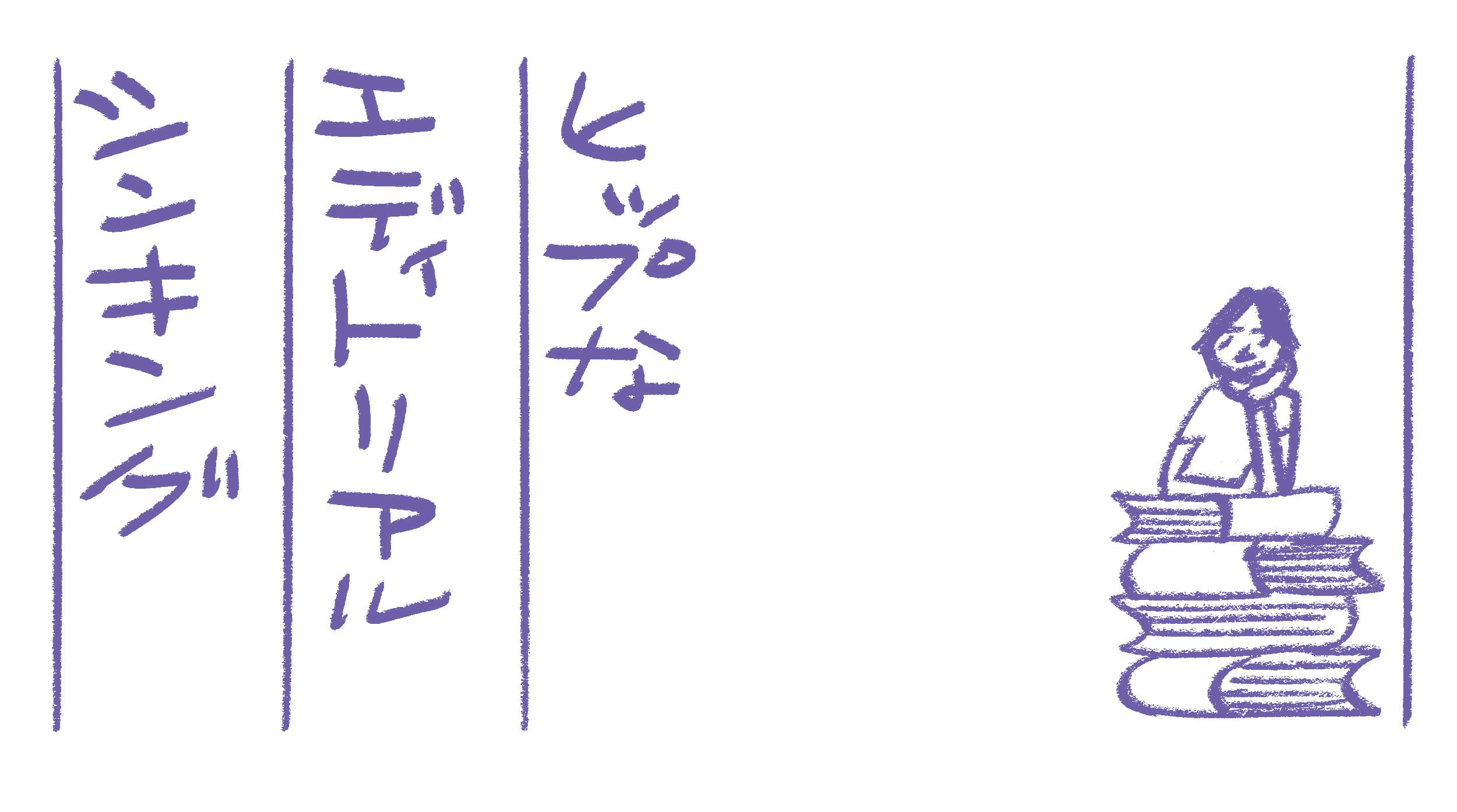The 7thCommunication is important.
It has been a long time since I began to hear the term "communication skills. I think it literally means the skill to excel in communication, but I can't help but feel that it is being used in a surprisingly misleading way.
When I hear "good communication skills" as an evaluation of someone who comes to a job interview, I am always skeptical. When I meet them, I usually find that they are not good communicators, but just talkative people with a sociable personality. Some people do not understand the questions we ask them and just talk long and ramble on about what they want to say. It is not uncommon to have an interview with someone who is not on the same page as the current exchange between Prime Minister Kan and a reporter. They may be nervous, but that does not make for a high evaluation.
On the other hand, there are some people whose social skills are not as good as their social skills, but they can still engage in conversation. They are the type who get the point I am trying to make and can carry on a conversation in a logical and orderly manner. This is the type of person who is likable.
To use a catch ball analogy, there is a difference between a person who repeatedly takes a new ball out of the basket and throws it because he throws a ball that cannot be taken, and a person who throws a ball that is easy to take to the chest. If asked which one they would rather play catch with, everyone would choose the latter.
However, those who are throwing hard-to-get pitches seem to have in common that they do not care much about what kind of pitches they are throwing. This is a bad situation.
Even in meetings, when someone asks a question about a problem and is thinking of a certain answer or countermeasure, some people go off the subject and move on to the next topic. This is also troublesome. The group is trying to solve a problem, but if the next topic is mentioned before a solution is proposed, or if a problem that is not even on the agenda of the meeting is mentioned, the meeting will dance. This is fine if it's just a well-chat or just a chat, but everyone is taking time out of their day to solve a problem, so I suggest that they keep their priorities in order.
It may seem that such a person is a good communicator because he talks this way and that, but it is not so. They are people who are missing the point.
In everyday life, whoever wants to communicate in any way is free to do so. We can chat endlessly and at will.
But that is not the case when it comes to work.
Good communication skills mean understanding the gist of what the other person wants to say, ask, or listen to, and conducting targeted dialogues. It is a state of being able to comprehensively judge the other person's attitude, speech, intonation, etc., and to understand two things when one is heard.
There are times when anyone can lose track of what is being said because the other person is talking too fast and winding up one-sidedly. A good communicator is someone who can sense who is not understanding what is being said and explain it using different words and examples. A person with good communication skills is someone who understands that it takes a lot of effort to convey what he or she wants to say without over or under communicating.
Many people pretend to understand without fully understanding, because it is too much trouble to ask again, or in some cases, they think it is rude, and so they understand disparagingly and pretend to understand. This is not good. I would rather have people ask as many times as they want until they understand, than to have incorrect understanding produce incorrect results. Accidents caused by miscommunication are one of the things that everyone wants to avoid.
Mistakes are made in the game of messages because of the lack of understanding and perversion of the receiver.
Doctor, you know, not, in short, from...
For the most part, people don't listen to other people's stories.
There is such a thing as Melavian's Law.
When people talk, they do not exchange meaning only through words. It is said that information other than language, such as visual and auditory information, has more influence on communication.

According to this law, people get 551 TP10T from visual information, 381 TP10T from auditory information, and only 7% from language. It is an old analogy, but I think I understand why Junichiro Koizumi became so popular.
Certainly facial expressions and gestures are more memorable than the content of what is being said, and I don't need to double-check with Professor Melavian at UCLA to know that.
A person in a good mood is more talkative than a person in a bad mood. A person who speaks clearly and confidently is more persuasive than a person who speaks in a whisper. In some cases, how you speak is more important for communication than what you say.
Curing the tone-deaf is quite a painstaking task. However, it may be possible to make a person who cannot swim swim manage to do so with training. Communication skills are also acquired skills.
A smile, even if it is awkward, is much better than a lack of expression and a grumpy mood. The question is whether you can recognize it or not.
One of the most common examples of Melavian's Law is chatting, which has become more and more popular in recent years. Miscommunication is easy to occur in such services as LINE, which has now become a part of our daily life infrastructure.
In normal conversation, the tone of the end of words is raised or lowered to convey whether it is a question or a confirmation, but with text alone, misunderstandings can occur. But with text alone, it can be misunderstood. In some cases, the message may be perceived as blunt. In this sense, it is inevitable that stamps and pictograms have developed.
Visual and auditory information, according to Melavian, is supplemented by pictograms and stamps. The same is true for emotional feelings.
There are people who are very emo in chat rooms, even though they are quite nonchalant when you meet them in person. The opposite is also true, but in today's world of advanced communication tools, using the wrong tool can cause unnecessary friction.
It is rather crucial to use such tools from now on, because it has become commonplace to communicate with each other by chatting, even between the seats next to each other. There is no way to say how this happened when visual and auditory information can say so much more than language.
I have a feeling that even the popular ZOOM meetings are somewhat less effective than direct conversations in terms of mutual understanding. I am sure that a paper will be published soon that will collect and explain such data.
The essence of communication is not a one-way street where you tell someone what you want them to do and they do the rest. It is about getting the other person to understand. It is about getting it into their gut, or rather, having them understand it.
Just because you send an e-mail, don't assume that the other person reads and understands every single word. With so much information coming and going every day, it is important to understand that everyone reads e-mails like a fish in a barrel. You need to keep it simple and to the point, and avoid tricky sentences.
Throw the ball at the chest so that the other person understands.
If you understand this point, you will be a strong communicator.
And, as a side note, I'd like to talk about tips on communication, such as communication and reporting at work.
Let's start with the conclusion. It's not English grammar, but after the subject comes the predicate. What happened and what you want to convey should be at the beginning. The explanation or commentary comes after that.
When teaching composition to children, some schools require them to write an opening sentence, "Sir, you know...". Children who are not good at writing essays have a hard time coming up with an opening sentence, so this helps them get into a rhythm. Weekly and monthly magazines also have columns with fixed opening sentences. It is the same thing.
A common form of writing in children's compositions is to list in chronological order the events from the time they wake up to the time they eat breakfast and come to school. While that is a very smiley sentence, it is frustrating when they communicate and report on their work in this manner.
Adults report from "in short".
What's the bottom line, that's what I want to hear. Plain from the beginning.
PROFILE

After working as a freelance editor, he founded Lino Inc., a production company that handles editing and production, etc. In 2004, he launched HOUYHNHNM.















